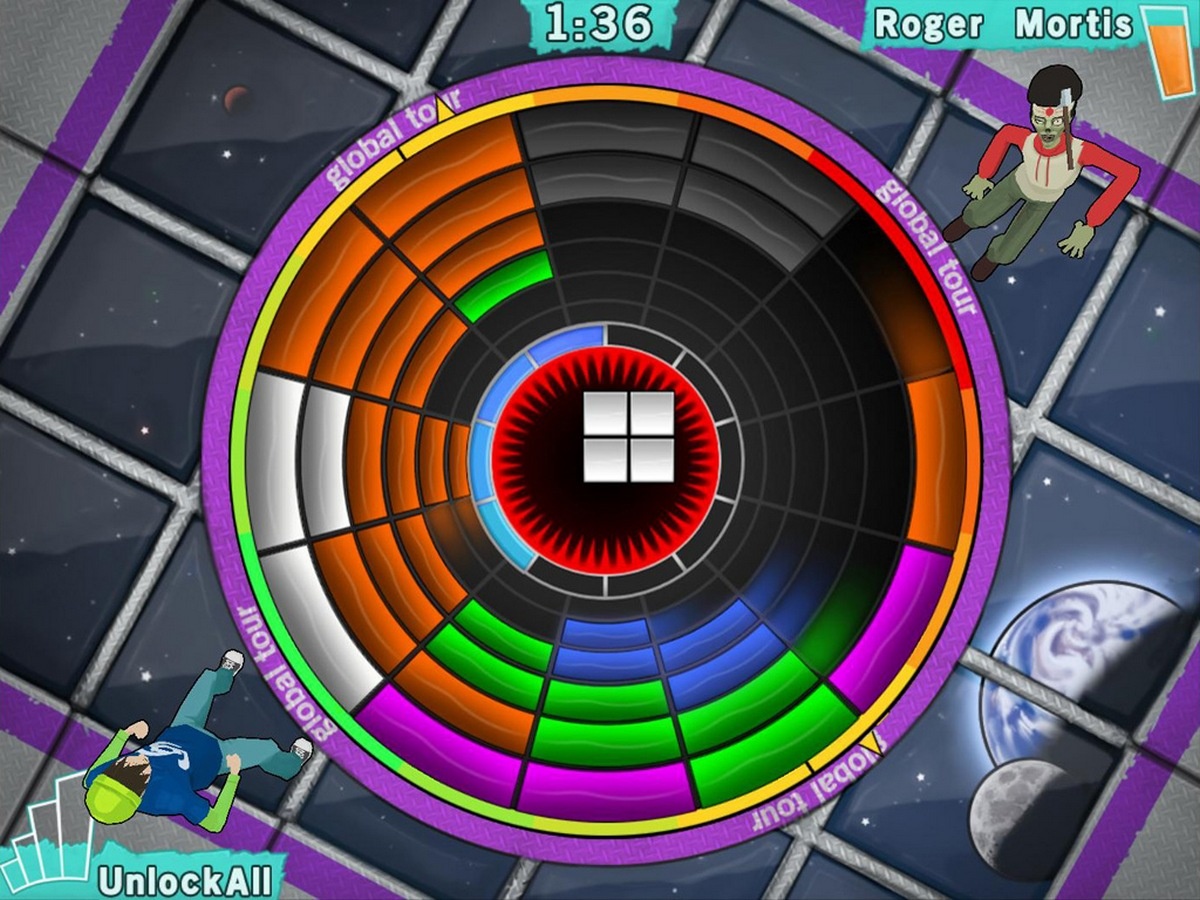An indie game with a conscience
We chat to Greater Good Games about Break Blocks, a game whose proceeds go towards humanitarian aid.
Break Blocks is not your average indie action puzzle game. It's a game with heart. From each sale made, a percentage of the proceeds go towards helping those in need.
The project of Tripwire Interactive (Red Orchestra: Ostfront 41-45, Killing Floor, Zeno Clash) programmer Dayle Flowers and independent art director Noah Wood, Greater Good Games is a charitable, not-for-profit indie game development studio.
The outfit operates by allowing consumers to pay what they want for the studio's first game, Break Blocks (a similar model to that of the Humble Indie Bundle) and then donating proceeds from each sale to the Nobel Prize-winning international medical humanitarian organisation Doctors Without Borders, which provides independent assistance to those afflicted by violence, neglect, malnutrition, and natural disasters in more than 60 countries.
Marvel Rivals - Official Loki Character Reveal Trailer | The King of Yggsgard Remnant 2 - The Forgotten Kingdom | DLC Launch Trailer Stellar Blade - Official "The Journey: Part 2" Behind The Scenes Trailer | PS5 Games Fortnite Festival - Official Billie Eilish Cinematic Season 3 Trailer Dead by Daylight | Tome 19: Splendor | Reveal Trailer Starship Troopers: Extermination - Official "The New Vanguard" Update 0.7.0 Trailer Super Monkey Ball Banana Rumble - Official Multiplayer Features Trailer Nintendo 64 – April 2024 Game Updates – Nintendo Switch Online Gori: Cuddly Carnage | Meow Launch Date Announcement Trailer PUBG | Erangel Classic Returns Genshin Impact - "Arlecchino: Afterglow of Calamity" | Collected Miscellany Stellar Blade Review
Please enter your date of birth to view this video
By clicking 'enter', you agree to GameSpot's
Terms of Use and Privacy Policy
Break Blocks was released last month on PC and Mac. Mixing beat-based mechanics with colourful blocks, the puzzler was inspired by Flowers' love for Dance Dance Revolution and the universal fascination with Tetris.
"I've been working on this game since I was 18 years old," Flowers says. "I played a lot of DDR growing up, and I wanted to meld the beat-based concept with something like Tetris. What we wanted to do was make a casual game for core gamers; easy to jump into, but difficult to master. We waned simple controls and a relatively simple idea, but a significant time investment from players."
Flowers knew he wanted to do something different when the time came to set up his own studio, but the thought of financial success (that is, having lots of money and nothing to do with it) led him and Wood to the idea of a not-for-profit studio that would donate all of its proceeds to a single charity. Using Flowers' own savings as start-up capital, the pair created Greater Good Games, working remotely and hiring contractors on a case-by-case basis.
"As the heads of the company, Noah and I are technically allowed to pay ourselves whatever we want. But there are so many CEOs in the United States that abuse this privilege. We wanted to keep reasonable to small salaries to maximise the charitable impact of Greater Good Games, which is why we looked at what entry-level programmers and artists are paid on average and put ourselves in a margin somewhere between that and what we'd normally be earning based on our individual experience."
To make ends meet, Flowers has continued his role at Tripwire, working remotely from his home while overseeing Greater Good's progress. The studio's current business model sees 20 percent of each sale going to Doctors Without Borders; if sales hit the US$25,000 mark, the studio will increase this to 30 percent; at US$50,000 to 40 percent; and anything over US$100,000 will see a donation of 50 percent on every sale. While the game has generally received a positive critical reception, it hasn't quite achieved the target that Flowers was hoping for.
"We're struggling to get gamers excited about it, to really get it in front of them so they can figure out that it's not just a simple puzzle game that's a time-waster, but rather a skill-based game that is quite addictive. I think it's to do with the visual style of the game--it looks like a puzzle game, so core gamers dismiss it, while casual gamers jump into it and then find it too difficult."
Flowers and Wood contacted Valve about getting Break Blocks onto Steam, but the publisher turned them down. This hasn't stopped them from thinking about plans to bring the game to other platforms in the future, including iOS and Android devices.
"Steam just told us that our game wasn't a good fit for them. We don't know Valve's process or their reasoning, and we know they have every right to not accept us. I think we have to stay positive and remember that some very big indie games were initially rejected from Steam.
"The indie games market is very saturated right now. Unfortunately, there aren't really any mechanics a developer can put into a trailer or video for their game to make it stand out. We know that just about everyone who has played Break Blocks has liked it and found it addictive and interesting. But we can't convince people through just a video. All we can do now is hope people align with our cause and support us by giving the game a shot."
To check out Break Blocks, download the demo, or purchase the full game, visit Greater Good Games.
Got a news tip or want to contact us directly? Email news@gamespot.com

Join the conversation